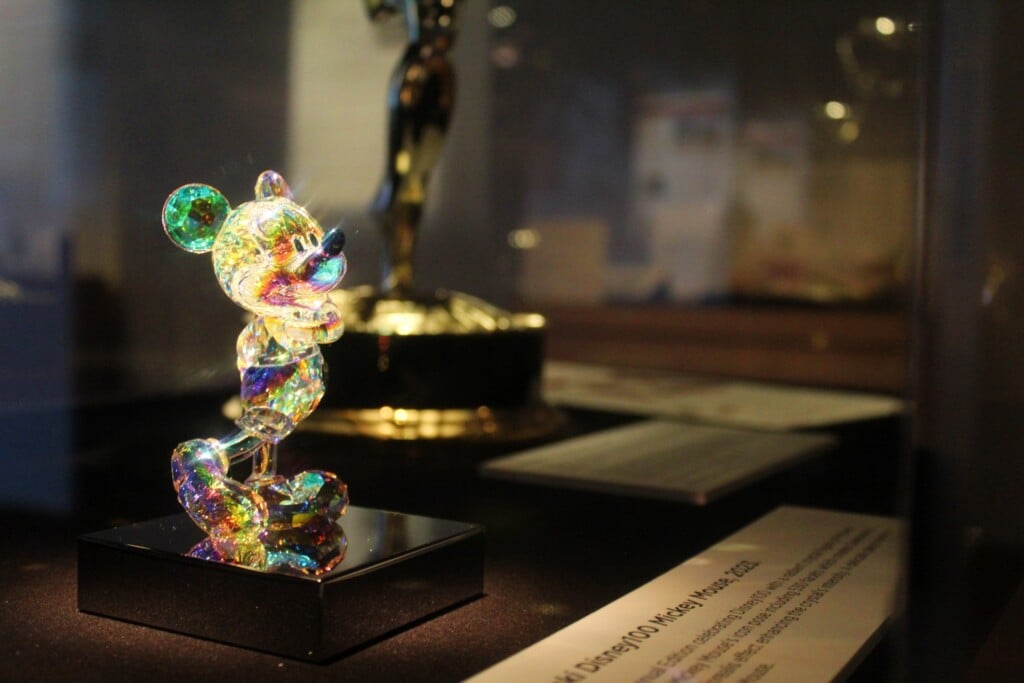Two if by Sea
With a new executive director, Shelley McThomas Bryant, as well as two new directors, the 2001 Heart of America Shakespeare Festival makes its ninth year one that ignores rules and regulations about keeping Shakespeare sacrosanct. “Shakespeare would roll over in his grave,” said one excited patron at the break in The Tempest, “but I love it.”
There had been rumors that The Tempest, Ian Wooldridge’s baby, would be awash with grand special effects; its opening scene, for example, has to convey a terrible storm and shipwreck. The fact that Wooldridge had to do it outside — a severe challenge for a design crew — spiked the level of anticipation.
So when the ship’s crew takes the stage in rubber slickers to some circus music and the portentous swell is created by stage hands tossing buckets of water on the actors, it has to diminish the hopes of those who’ve been expecting a John Woo movie. Yet that minimalist storm is so clever, it makes more open-minded viewers sit up and pay attention. Just what is Wooldridge after here, anyway?
The play never definitively answers that question — except to say, “whatever the budget allows.” Patience being a Shakespearean virtue, the audience is thusly treated to bigger and flashier moments of spectacle, turning The Tempest from a serious treatise on murder and betrayal to a black comedy without bounds. If the magician Prospero (Mark Robbins) has several tricks up his sleeve, Wooldridge trumps him at every turn.
While Prospero must whip up a series of incantations to ward off those who would have his head, his daughter Miranda (Jenn Miller) becomes preoccupied with another kind of magic, that which accompanies first love. Ferdinand (a Tom Cruise-y James Knight) is the son of Prospero’s rival, Alonso (Robert Arsante), and one of the shipwrecked passengers who turns the sparsely populated island into a kind of coliseum. The young man is only the third male Miranda has ever seen — if you count her father and his beastly slave, Caliban (Larry Greer) — and Prospero embraces their courtship.
Encroaching on Prospero’s mortality from another faction are the jester Trinculo (Scott Cordes) and Stephano (Christopher Hatch), two mad party boys. As the walls close in on Prospero, he seems oddly mellowed by a sense of acceptance regarding his certain grisly end. In fact, the second act opens with a stage show Prospero has cooked up to celebrate Miranda’s and Ferdinand’s betrothal — and it’s the scene audiences talk about the next day. After some dubious costuming in the first act (Caliban looks like Raquel Welch in One Million Years B.C. with John Travolta’s wig from Battlefield Earth, and Miranda’s outfit seems to have been blindly sewn together from table scraps), Mary Traylor wows the audience with sequins and feathers. The stage starts to look like a Las Vegas girlie show crossed with Julie Taymor’s The Lion King. It’s Shakespeare on Ecstasy.
Turn around Gene Emerson Friedman’s set of jagged driftwood and you have a more traditional villa for Twelfth Night, Sidonie Garrett’s impressive festival debut as a director. This play also opens with a storm at sea. Garrett and designers Traylor and Friedman take Shakespeare’s gender-blending comedy for a spin in a vehicle that, at its most jaunty, feels like a Preston Sturges movie from the 1940s. The dialogue cracks like a whip — for example, when Olivia sees Viola’s previously veiled face, she assesses the situation and exclaims “Excellently done, if God did all.” The language is Shakespeare’s, but it sounds amazingly contemporary.
While The Tempest is admirably mounted and feverishly creative, it’s the more standard, less extravagant Twelfth Night that shows off its cast. There are fine performances all around but especially notable are Mark Robbins’ flatulent Toby Belch, Cinnamon Schultz’s winsome Olivia and Molly Jo McGuire’s trapped Viola. And then there’s Jan Rogge’s conniving Maria, Henry Vick’s storklike Sir Andrew and Charles Leader’s gullible Malvolio. Finally, Robert Gibby Brand’s Feste entertains as both a jester and a balladeer.
Even more incredible is the seamless integrity of actors separated by years of experience. In other plays in other venues, mixing veterans like Robbins and Cordes with under- or post-graduate theater students has produced disjointed dramas. But what’s striking about both festival shows isn’t glaring inconsistencies; the UMKC folks such as Christopher Hatch and James Knight are on a par with their elders.
After last year’s troublesome shows, getting through these storms is a summer breeze.




